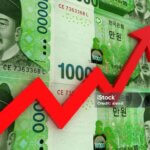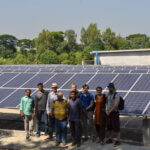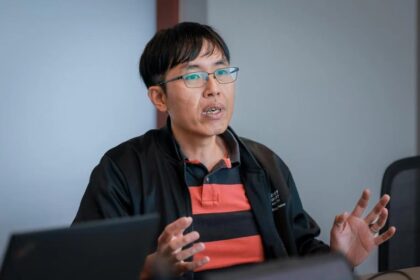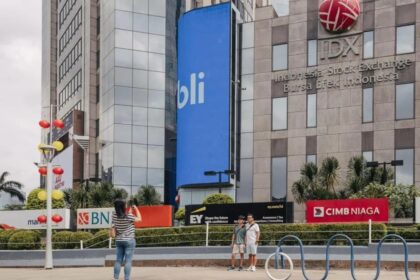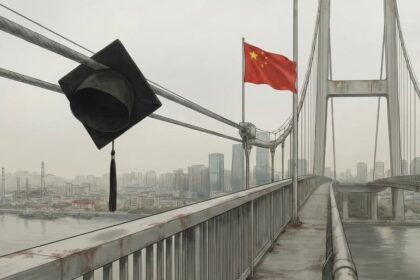A Nation’s Ambition at a Crossroads
South Korea has declared its ambition to become a global top-three powerhouse in artificial intelligence, backing this vision with a staggering 100 trillion won (approximately $73 billion) public-private investment. The government is appointing top AI strategists, fostering partnerships with tech giants like Amazon Web Services, and planning massive infrastructure projects. Yet, a critical vulnerability threatens to unravel this entire national project: the country is bleeding its most valuable resource—its own highly skilled talent. A recent, damning report from the Korea Chamber of Commerce and Industry’s (KCCI) Sustainable Growth Initiative (SGI) reveals that South Korea is facing a severe and worsening “brain drain,” particularly in the crucial field of AI. The nation that educates some of the world’s brightest minds is increasingly watching them leave to build the future elsewhere, raising urgent questions about whether its monumental investment can succeed without the people needed to drive it.
The Scale of the Exodus: A Statistical Deep Dive
The SGI report paints a stark picture of a nation losing its competitive edge in the global talent war. In 2024, South Korea recorded a net loss of 0.36 AI experts for every 10,000 people, placing it 35th out of 38 member countries of the Organization for Economic Cooperation and Development (OECD). This puts the country near the very bottom, in stark contrast to nations experiencing a talent influx. Luxembourg, for instance, gained 8.92 AI professionals per 10,000 people, while Germany gained 2.34 and the United States saw a net increase of 1.07. This negative “brain balance”—the net difference between professionals leaving and arriving—marks a dramatic reversal from just 2020, when the country still enjoyed a modest net inflow of AI talent.
This alarming trend is not confined to AI. The broader science and technology sector is experiencing a similar hemorrhage. In 2021, the rate of Korean scientists moving abroad (2.85 percent) outpaced the rate of foreign scientists moving in (2.64 percent), ranking the country 33rd out of 43 nations in scientific talent retention. The primary beneficiary of this exodus is the United States. In 2023 alone, the U.S. issued 5,684 high-skilled EB-1 and EB-2 visas to South Korean nationals. Furthermore, a staggering 71.1 percent of Korean Ph.D. graduates in the U.S. reported plans to stay there for the long term, a figure that has been steadily climbing. The message is clear: the most capable are the most likely to leave.
The economic consequences are substantial. The KCCI estimates that the public education cost for a single college graduate is around 215 million won. When that individual leaves to work abroad, the nation loses an additional 341 million won in potential lifetime tax revenue. This amounts to a direct loss of over 550 million won per person, a figure that doesn’t even account for the immense, unquantifiable value of their innovation and contributions to the economy. SGI researcher Kim Cheon-goo summarized the crisis poignantly.
“We’re watching the foundation of Korea’s scientific future quietly erode. And we are helping build it elsewhere.”
Why They Leave: The Root Causes of the Brain Drain
The decision for South Korea’s top talent to seek opportunities abroad is not impulsive but a calculated response to a combination of deep-seated structural, cultural, and financial issues. While the allure of global tech hubs is strong, the push factors from within Korea are equally powerful.
The Compensation Chasm
Perhaps the most glaring issue is the vast disparity in compensation. While Korean companies are competitive, they struggle to match the astronomical offers from global tech giants. Reports indicate that entry-level salaries for graduates with master’s and Ph.D. degrees at top U.S. firms like Google, Apple, and Nvidia can exceed $400,000. This is a different world compared to the domestic market. The gap is also stark in academia, a crucial incubator for future talent. The median starting salary for an assistant professor in South Korea is approximately $32,000 per year. In the United States, that figure is over $83,000, while Germany offers around $70,000 and Japan $46,000. For top performers, the financial incentive to leave is simply too large to ignore.
A Rigid and Hierarchical Culture
Beyond money, many young professionals are fleeing a work environment they find stifling. South Korea’s corporate and academic culture is often characterized by rigid, top-down hierarchies and a seniority-based system for pay and promotions. This structure can frustrate ambitious young researchers and engineers who feel their advancement is tied to tenure rather than merit. They are drawn to the more open, meritocratic cultures of Silicon Valley and other global centers, where intellectual risk-taking is encouraged and performance is rewarded. This cultural friction is a significant deterrent, pushing away the very innovators the country needs most.
Structural and Regulatory Hurdles
Several systemic issues further compound the problem. The government’s 52-hour workweek cap, intended to improve work-life balance, has had an unintended consequence for high-skilled research. Unlike the U.S., Japan, and Germany, which have exemptions for high-earning professionals or researchers in advanced fields, Korea’s rigid cap can limit the flexibility needed for intensive, project-based work. Another major complaint is the state of research infrastructure. Many researchers cite a lack of access to high-performance computing resources, such as the GPUs essential for AI development, and difficulties in securing the large-scale datasets needed for cutting-edge work. Finally, performance evaluations that prioritize short-term, easily quantifiable results discourage the kind of long-term, ambitious research that leads to true breakthroughs, pushing scientists to environments where they have more autonomy and support for foundational innovation.
The Other Side of the Coin: Failing to Attract Foreign Talent
The brain drain is a two-sided problem: not only is South Korea losing its domestic talent, but it is also failing to attract and retain foreign experts who could help fill the gap. The country’s efforts to recruit from abroad have been largely ineffective. A prime example is the “E-7-S Advanced Talent Visa,” introduced to attract professionals in AI, semiconductors, and aerospace. An investigation revealed that a shockingly low number of only 38 experts are currently residing in Korea under this program.
Foreign professionals who do come to South Korea face a mountain of challenges that often lead to high turnover. A survey by the Software Policy & Research Institute (SPRi) found that 76.2% of foreign talent on the main specialized talent visa remain in the country for less than three years. The reasons are multifaceted:
- Recruitment Mismatch: Korean companies heavily rely on personal or employee referrals to hire foreign talent, while most international professionals use platforms like LinkedIn. This disconnect means companies and candidates often fail to find each other.
- Financial and Housing Barriers: Foreigners struggle with Korea’s unique “jeonse” lump-sum housing deposit system and face limitations in accessing financial services. Simple tasks like opening a bank account or making wire transfers can be complicated by requirements for Korean mobile numbers and complex digital certificate systems.
- Cultural and Communication Issues: Beyond the language barrier, many foreign workers find it difficult to adapt to the demanding, company-centric work culture, which often includes long hours, pressure against taking vacation, and frequent after-hours gatherings.
These cumulative difficulties make South Korea an unattractive destination for the global talent it desperately needs to compete, creating a closed loop where the domestic talent pool continues to shrink without being replenished from the outside.
The Path Forward: From Brain Drain to Brain Gain
Faced with this escalating crisis, experts and industry leaders are calling for a fundamental shift in national strategy—from simply trying to plug the leak to creating a system that actively attracts talent. The consensus is that South Korea needs to move beyond a defensive “brain drain” mindset to a proactive “brain gain” strategy that fosters a sustainable cycle of talent circulation.
The SGI report and editorials from major Korean news outlets have outlined a series of sweeping reforms. A central recommendation is to overhaul compensation systems, moving away from seniority-based pay to performance-linked rewards that can compete on a global scale. One bold proposal from Seoul National University’s College of Engineering suggests selecting 1,000 elite researchers and providing them with exceptional treatment and resources. Another critical area is labor regulation. Policymakers are being urged to create more flexible work arrangements, including exemptions from the 52-hour workweek for researchers in advanced fields, to grant them the autonomy they need to innovate.
Addressing the challenges for foreign talent is equally crucial. This includes simplifying visa procedures, providing better support for housing and financial integration, and fostering more inclusive workplace cultures. Beyond policy, there is a call to tackle the root of the talent pipeline issue. The national obsession with medical school admissions has drained students from STEM fields, with many universities struggling to fill their engineering programs. Reforming the education system to better value and incentivize careers in science and technology is seen as essential for long-term competitiveness. Ultimately, success will depend not on the amount of money invested, but on the nation’s ability to create a robust ecosystem where the world’s brightest minds—both domestic and foreign—can thrive.
In Summary
- South Korea is experiencing a critical brain drain of AI and science professionals, ranking 35th out of 38 OECD countries in net AI talent mobility.
- This talent exodus directly threatens the country’s ambitious $73 billion national strategy to become a top-three global AI leader.
- The primary causes are significant salary gaps with global tech hubs, a rigid and hierarchical work culture, and restrictive regulations like the 52-hour workweek that stifle research flexibility.
- The nation is also failing to attract or retain foreign experts due to bureaucratic hurdles, financial and housing difficulties, and cultural barriers.
- Experts are calling for a proactive “brain gain” strategy, including sweeping reforms to compensation, work flexibility, research infrastructure, and visa policies.
- Without a fundamental overhaul of its talent ecosystem, South Korea risks educating the world’s top minds only to watch them build the future for other nations.



